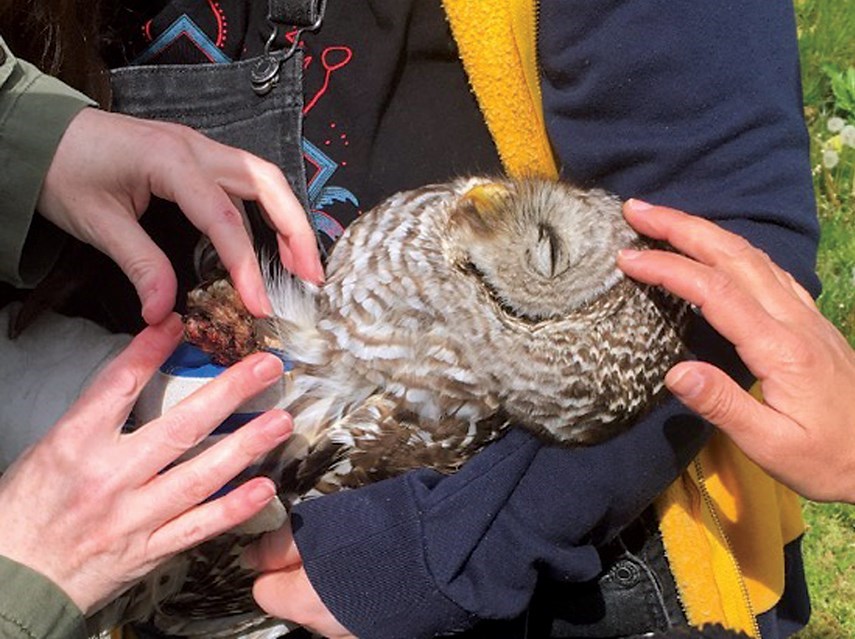B.C.’s Environment Minister says he will be taking some action to curb the use of rat poisons that have a nasty habit of indiscriminately killing other wildlife, although the commitment may not go far enough for North Vancouver advocates.
Yasmin Abidi launched a petition last year that racked up almost 19,000 signatures calling on the province for an outright ban on anticoagulant rodenticides.
Anticoagulants work by thinning the blood of whatever animal consumes them, causing them to slowly bleed out. But any predator or scavenger that eats a poisoned rodent will very likely die itself.
Abidi’s MLA, North Vancouver-Seymour NDP member Susie Chant, delivered the petition in the legislature on March 13 and Environment Minister George Heyman wrote directly to Abidi last week, pledging to “address risks associated” with rodenticides. His letter to Abidi references better education, stricter enforcement and possibly more stringent measures.
“I have asked ministry staff to develop options for improvements to how rodenticides are regulated in B.C., including consideration of bans,” Heyman wrote.
Abidi said she was surprised to get a response so soon, although it is hardly a case of owls well that ends well, she added.
“It's not 100 per cent what I'm asking for, but it's the start of a conversation,” she said. “The fact is that owls are still dying and until we get rid of these substances completely, the problem is still going to exist.”
After lobbying from Abidi, all three North Shore councils passed resolutions that ban the use of rodenticides on municipal land but they do not have jurisdiction to ban their sale or use on private property.
Abidi said she understands there is a need for pest control and a lot of money at stake for the industry, but she said it is beyond time to for the law to require more humane tactics. There is research that rodent pests can be made infertile using non-toxic baits, she said. Snap traps can also be preferable. And newer on the market are CO2-powered traps designed to bean the noggin of any rat that pokes its head in, leaving a non-toxic meal for wild scavengers to feed on.
“All they’re doing is trying to feed themselves, and it's really unfair,” she said.
In 2020, Abidi had a hand in saving a North Vancouver barred owl, dubbed “Lucky” after he narrow survived rodenticide poisoning twice in one month. He was later released in Capilano River Regional Park and Abidi hopes she won’t run into him again.
“I hope to God he is halfway to Alaska or even in Alaska and he's got a mate and he's had his breeding season, probably has got some babes,” she said. “I'm really hoping he's living his best life as far away from bait boxes as possible.”
Abidi, an actor by day, has also been working on a documentary about Lucky.
“It's all coming together,” she said. “It’s going to be an education piece and awareness piece and I want to be able to put it out there to the world because it's a worldwide issue.”
To raise money for the film, Abidi has been selling “Lucky’s Army” buttons, which can be requested at luckytheowl@gmail.com.
Abidi said she is waiting to see what actions Heyman will take, but in the meantime, she still encourages more people to sign the Please Ban Rodenticides to Save Owls petition on change.org or write to Heyman’s office directly.
“We need that ban, and we needed it decades ago,” she said.



